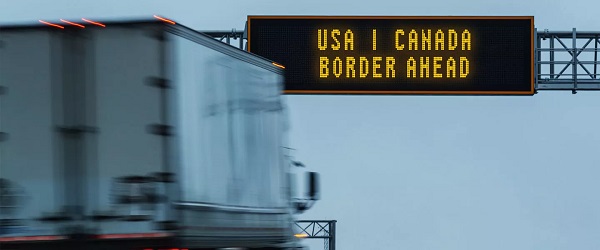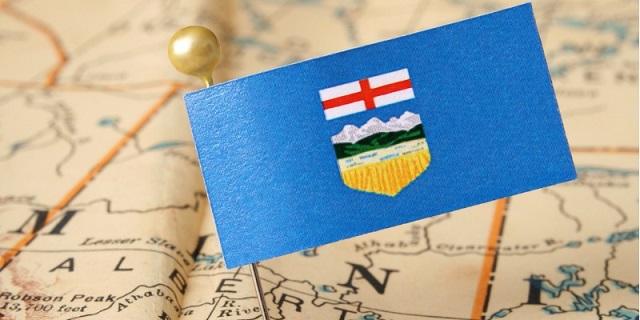espionage
Biden expands government’s power to spy on Americans without a warrant
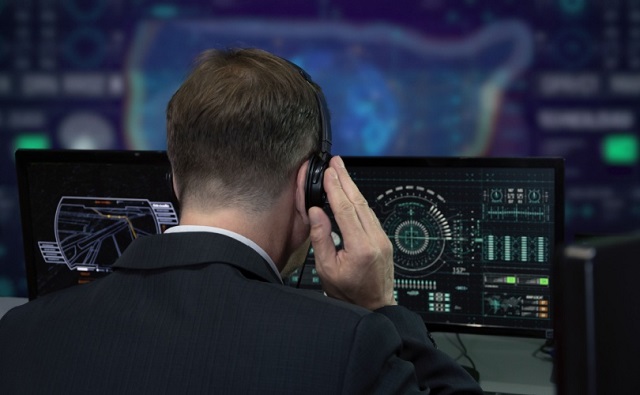
From LifeSiteNews
Legal experts have pointed out that under an updated version of the Foreign Intelligence Surveillance Act (FISA), delivery personnel, cleaning contractors, and utility providers could all be forced to surveil Americans.
U.S. President Joe Biden has quietly signed legislation reauthorizing and expanding the government’s ability to spy on American communications without a warrant.
On April 20, Biden signed the reauthorization of Section 702 of the Foreign Intelligence Surveillance Act (FISA) that allows the government to compel a broader range of businesses to collect the communications of U.S. citizens when they are in contact with foreigners, according to legal experts.
The newly passed, updated version of Section 702 accomplishes this by expanding the definition of “electronic communication service providers” who can receive FISA directives to tap communications by dropping the qualifier “communication” from electronic service providers. The new amendment, therefore, makes access merely to equipment on which communications are carried or stored enough to legally surveil Americans.
While the amendment lists types of businesses that cannot be considered Electronic Communication Service Providers (ECSPs), including public accommodations, dwellings, and restaurants, ZwillGenBlog points out that the law still allows the government to “compel the assistance of a wide range of additional entities and persons in conducting surveillance under FISA 702.”
“The breadth of the new definition is obvious from the fact that the drafters felt compelled to exclude such ordinary places such as senior centers, hotels, and coffee shops. But for these specific exceptions, the scope of the new definition would cover them — and scores of businesses that did not receive a specific exemption remain within its purview,” ZwillGenBlog explained.
The legal experts noted that among the entities that could be forced to surveil Americans under the amendment are “the owners and operators of facilities that house equipment used to store or carry data, such as data centers and buildings owned by commercial landlords,” as well as others who can access such equipment, including “delivery personnel, cleaning contractors, and utility providers.”
ZwillGenBlog also pointed out that “any U.S. business could have its communications” — if involving a foreigner — “tapped by a landlord with access to office wiring, or the data centers where their computers reside.”
Democratic U.S. Sen. Dick Durbin of Illinois had tried and failed to pass an amendment that would require government officials to obtain a warrant before spying on American communications, according to the Associated Press (AP).
“If the government wants to spy on my private communications or the private communications of any American, they should be required to get approval from a judge, just as our Founding Fathers intended in writing the Constitution,” Durbin said.
Critics of the new amendment warn that over the past year alone the FBI has unconstitutionally spied on Americans, including Republican U.S. Rep. Darin Lahood of Illinois, who serves on the Permanent Select Committee on Intelligence and the Committee on the Chinese Communist Party, as well as Americans present at or near the Capitol on January 6, 2021.
Under Section 702 of the Foreign Intelligence Surveillance Act (FISA), passed in 2008, the National Security Agency (NSA), operating inside the United States, is authorized to collect communications of foreigners overseas for foreign intelligence purposes without a warrant “because courts have held that foreigners have no Fourth Amendment rights,” according to Elizabeth Goitein.
“Although ostensibly targeted at foreigners, Section 702 surveillance inevitably sweeps in massive amounts of Americans’ communications,” Goitein further noted.
“Recognizing the impact on Americans’ privacy, Congress required the NSA to ‘minimize’ the sharing, retention, and use of this ‘incidentally’ collected U.S. person data. But the government and the FISA Court have embraced an interpretation of ‘minimize’ that is remarkably … maximal.”
“The NSA shares raw data with multiple other agencies — including the FBI and the CIA — and all of them retain the data for a functional minimum of five years. Moreover, the FBI routinely combs through it looking for Americans’ communications to use in purely domestic cases, even in situations where the FBI lacks a factual predicate to open a full investigation,” Goitein continued.
There are other means by which the U.S. government can spy on Americans. In 2022, Biden issued an executive order (EO) that allows the government to surveil Americans for broadly defined reasons including understanding “public health risks,” “political instability,” and the “threat” of climate change.
The EO was ostensibly written to “enhanc[e] safeguards” for “United States Signals Intelligence Activities,” which is intelligence gathering by the interception of signals, including communications, such as through cell phones, or those not used in communication. An accompanying fact sheet explains that the EO is meant to help “implement the U.S. commitments under the European Union-U.S. Data Privacy Framework (EU-U.S. DPF)” in an effort to “restore trust and stability” to transatlantic data flows.
Alongside permitting spying for the purposes of sizing up the capabilities of foreign entities, the EO permits signals intelligence collection for “understanding or assessing transnational threats that impact global security, including climate and other ecological change, public health risks, humanitarian threats, political instability, and geographic rivalry.”
The document’s lack of elaboration on such so-called “transnational threats” raises the question of the true scope of activity now officially subject to spying by the U.S. government, which is potentially massive.
2025 Federal Election
Canadian officials warn Communist China ‘highly likely’ to interfere in 2025 election

From LifeSiteNews
The Canadian government believes China will use specific tools ahead of the April election such as AI and social media to specifically target ‘Chinese ethnic, cultural, and religious communities in Canada using clandestine and deceptive means.’
Canadian officials from the Security and Intelligence Threats to Elections (SITE) Task Force warned that the Chinese Communist Party (CCP) government will most likely try to interfere in Canada’s upcoming federal election.
Vanessa Lloyd, chair of the task force, observed during a March 24 press conference that “it is expected that the People’s Republic of China, or PRC, will likely continue to target Canadian democratic institutions and civil society to advance its strategic objectives.”
SITE is made up of representatives of multiple Canadian departments and agencies that have a security mandate.
Lloyd’s regular job is as the Deputy Director of Operations, second in charge, for Canada’s spy agency, the Canadian Security Intelligence Service (CSIS).
According to Lloyd, officials from China as well as CCP proxies will be “likely to conduct foreign interference activity using a complex array of both overt and covert mechanisms.”
Her warning comes after the final report from the Foreign Interference Commission concluded that operatives from the CCP may have had a hand in helping to elect a handful of MPs in both the 2019 and 2021 Canadian federal elections. It also concluded that China was the primary foreign interference threat to Canada.
The commission shed light on how CCP agents and proxies conduct election interference, with one method being to rally community groups to make sure certain election candidates are looked down upon.
According to Lloyd, it is “highly likely” that China will engage in certain election meddling using specific tools such as AI.
“The PRC is highly likely to use AI-enabled tools to attempt to interfere with Canada’s democratic process in this current election,” she noted, adding that China will also use social media as well to “specifically target Chinese ethnic, cultural, and religious communities in Canada using clandestine and deceptive means.”
Lloyd also noted that the Indian government could also be involved in meddling, as it has the “intent and capability” to “assert its geopolitical influence.”
Canada will hold its next federal election on April 28 after Prime Minister Mark Carney triggered it on Sunday.
As reported by LifeSiteNews earlier in the month, a new exposé by investigative journalist Sam Cooper claims there is compelling evidence that Carney and former Prime Minister Justin Trudeau are strongly influenced by an “elite network” of foreign actors, including those with ties to communist China and the World Economic Forum.
In light of multiple accusations of foreign meddling in Canadian elections, the federal Foreign Interference Commission was convened last year to “examine and assess the interference by China, Russia, and other foreign states or non-state actors, including any potential impacts, to confirm the integrity of, and any impacts on, the 43rd and 44th general elections (2019 and 2021 elections) at the national and electoral district levels.”
The commission was formed after Trudeau’s special rapporteur, former Governor General David Johnston, failed in an investigation into CCP allegations after much delay. That inquiry was not done in public and was headed by Johnston, who is a “family friend” of Trudeau.
Johnston quit as “special rapporteur” after a public outcry following his conclusion that there should not be a public inquiry into the matter. Conservative MPs demanded Johnston be replaced over his ties to China and the Trudeau family.
Daily Caller
CIA Agents Posing As State Department Officials Outnumbered Real Ones, JFK Doc Shows
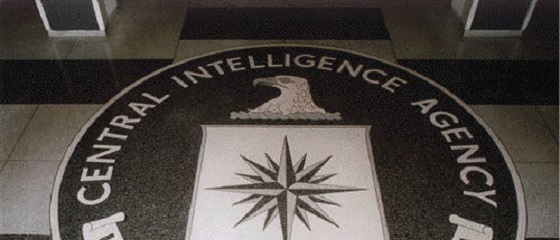

From the Daily Caller News Foundation
By Emily Kopp
Several foreign embassies housed more Central Intelligence Agency (CIA) agents posing as genuine State Department officials between 1950 to 1960, according to a document found in the more than 63,000 pages relating to former President John F. Kennedy’s assassination, released to the public by the Trump administration Tuesday evening.
CIA mission chiefs under diplomatic cover sometimes wielded more influence than the ambassadors, even advocating policies in conflict with official U.S. diplomacy, according to a June 10, 1961, memo. Kennedy was warned by historian Arthur Schlessinger Jr. in the document that CIA agents posing as State Department officials — so-called “Controlled American Sources” (CAS) — risked delegitimizing U.S. diplomacy.
“The effect is to further CIA encroachment on the traditional functions of State,” he wrote.
The CIA mission chief often exerted more power than the top diplomats, sometimes to conflicting ends, he said.
“On the day of President Kennedy’s inauguration, 47 percent of the political offices serving in United States Embassies were CAS,” the memo reads. “Sometimes the CIA mission chief had been in the country longer, has more money at his disposal, wields more influence (and is abler) than the Ambassador. Often he has direct access to the Prime Minister. Sometimes (as during a critical period [unreadable]) he pursues a different policy from that of the Ambassador. And he generally well known locally as the CIA representative.” (RELATED: Trump Administration Releases JFK Assassination Files)
Schlessinger’s 1961 memo to the president about the CIA — in which he advocated for a reorganization of the agency — had been of interest to historians and independent researchers as a Rosetta stone for understanding hostility between the former president and the nation’s foreign intelligence gathering services.
One section of the memo, however, spanning roughly 1.5 pages, remained redacted and was only revealed Tuesday night. The section described the CIA’s widespread use of diplomatic cover and its risks. Diplomatic cover was less expensive than other methods, quicker, and more attractive for agents, the memo states.
It’s unclear why the information has been concealed from the public for decades.
Director of National Intelligence Tulsi Gabbard praised the release of some 2,182 files related to the Kennedy presidency Tuesday and signaled that more documents could be released upon being released from court seal.
“President Trump is ushering in a new era of maximum transparency,” she said in a statement.
Schlessinger listed the number of CIA agents or “CAS personnel” populating embassies abroad.
“In the American embassy in Vienna, out of 20 persons listed in the October 1960 Foreign Service List as being in the Political Section, 16 are CAS personnel; of the 31 officers listed as engaging in political activities, over half are CAS,” he wrote. “Of the 13 officers listed in the political section of our embassy in Chile, 11 are CAS.”
Schlessinger expressed concern about the CIA’s dominance in the U.S. Embassy in Paris.
“In the Paris embassy today, there are 123 CIA people. CIA [in Paris] has long since begun to move into areas of political reporting typically occupied by State. The CIA men doing overt internal political reporting outnumber those in the Embassy’s political section by 18-2. CIA has even sought to monopolize contact with certain French political personalities, among them the President of the National Assembly,” he said.
The memo makes apparent reference to rumored CIA backing of the April 1961 Algiers putsch, in which generals unsuccessfully attempted a coup d’etat in French Algeria. French President Charles de Gaulle was moving Algeria toward self-determination and away from French control, which the generals opposed.
“CIA occupies the top floor of the Paris embassy, a fact well known locally; and on the night of the Generals’ [unreadable] in Algeria, passersby noted with amusement that the top floor was ablaze with lights,” he wrote. “I am informed that Ambassador Gavin was able to secure entrance that night to the CIA offices only with difficulty.”
Jefferson Morley, vice president of the Mary Ferrell Foundation and a longtime advocate for declassification, had identified this redaction section of the memo as among his top priorities ahead of the new release.
Schlessinger suggested a review of policies instituted around Jan. 19, 1961 — the day before Kennedy’s inauguration. The historian had warned Kennedy about so-called “controlled American sources” becoming a permanent feature of the foreign service, while also advocating for the “steady reduction” of CIA agents at U.S. embassies.
“Before State loses control of more and more of its presumed overseas personnel, and before CAS becomes permanently integrated into the Foreign Service, it would seem important (a) to secure every ambassador the firm control over the local CAS station nominally promised in the [unreadable] Directive of January 19, 1961, and (b) to review the current CAS direction with an eye to a steady reduction of CAS personnel,” he wrote.
The degree to which diplomatic cover for CIA agents remains a threat to the State Department’s independence and legitimacy also remains unclear. A New York Times story on March 6 about the shuttering of some foreign embassies noted that the prospect of further cuts had “generated some anxiety within the Central Intelligence Agency.”
“The vast majority of undercover American intelligence officers work out of embassies and consulates, posing as diplomats, and the closure of diplomatic posts would reduce the C.I.A.’s options for where to position its spies,” the paper reported.
-

 Alberta2 days ago
Alberta2 days agoAlberta Institute urging Premier Smith to follow Saskatchewan and drop Industrial Carbon Tax
-

 Alberta2 days ago
Alberta2 days agoAlbertans have contributed $53.6 billion to the retirement of Canadians in other provinces
-
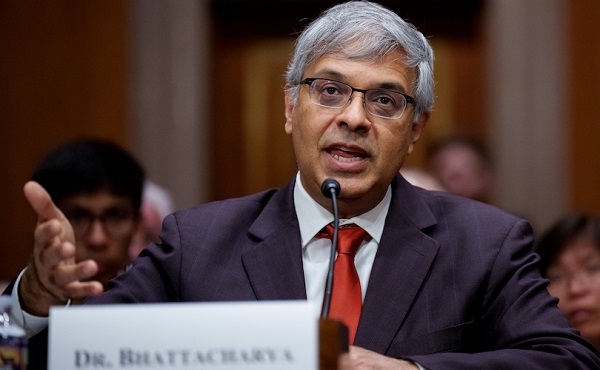
 Health2 days ago
Health2 days agoHow the once-blacklisted Dr. Jay Bhattacharya could help save healthcare
-

 Addictions2 days ago
Addictions2 days agoShould fentanyl dealers face manslaughter charges for fatal overdoses?
-
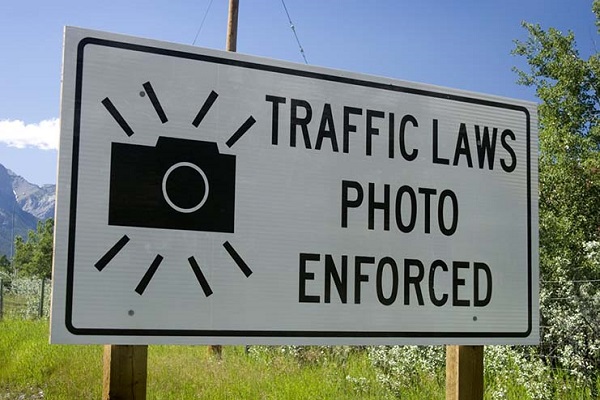
 Alberta16 hours ago
Alberta16 hours agoPhoto radar to be restricted to School, Playground, and Construction Zones as Alberta ends photo radar era
-

 Alberta15 hours ago
Alberta15 hours agoProvince pumping $100 million into Collegiates and Dual-Credit hands-on learning programs
-

 Fraser Institute15 hours ago
Fraser Institute15 hours agoPremier Eby seeks to suspend democracy in B.C.
-

 Alberta10 hours ago
Alberta10 hours agoProvince announces plans for nine new ‘urgent care centres’ – redirecting 200,000 hospital visits



